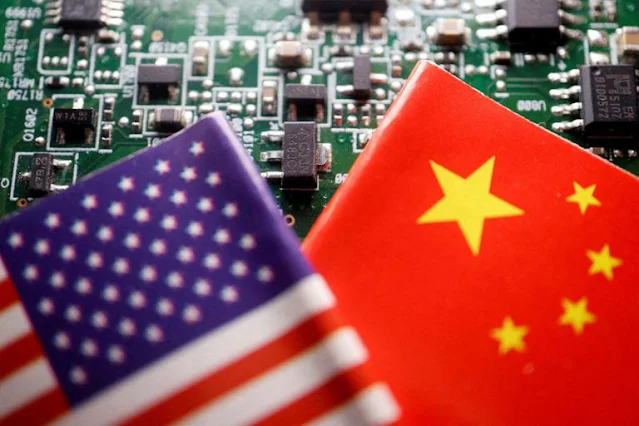WASHINGTON (Reuters) - President Joe Biden unveiled a series of significant tariff increases on various Chinese imports, including electric vehicles, computer chips, and medical products, risking further tension with Beijing to appeal to voters unhappy with his economic policies.
The White House stated that Biden would maintain tariffs imposed by his predecessor, Donald Trump, while increasing others, including a quadrupling of tariffs on electric vehicles to over 100%. The administration cited concerns about U.S. economic security due to what it sees as unfair Chinese practices flooding global markets with cheap goods.
The new tariffs affect $18 billion worth of Chinese imports, including steel, aluminum, semiconductors, batteries, critical minerals, solar cells, and cranes, according to the White House. The announcement confirms earlier reports by Reuters.
In 2023, the United States imported $427 billion in goods from China and exported $148 billion to China, resulting in a trade gap that has persisted for decades and is a sensitive subject in Washington.
Lael Brainard, White House National Economic Adviser, accused China of using unfair practices to boost its own growth at the expense of others. U.S. Trade Representative Katherine Tai justified the tariffs, citing China's ongoing theft of U.S. intellectual property and aggressive cyber intrusions targeting American technology.
Despite aligning with Trump's tough stance on trade, Biden criticized his predecessor's trade deal with China, arguing that it did not increase American exports or manufacturing jobs. The White House also criticized Trump's proposal for 10% across-the-board tariffs on goods from all origins, saying it would upset U.S. allies and raise prices.
Administration officials defended their targeted tariffs, claiming they are part of a carefully planned strategy that includes domestic investment and cooperation with allies. They downplayed the risk of inflation and retaliation from Beijing.
Biden's tariff hikes are part of a departure from the free-trade consensus that once dominated Washington. Analysts warn that these measures could raise costs for electric vehicles, potentially hindering Biden's climate goals and job creation efforts.
Biden has expressed a desire to compete with China without sparking a trade war. He has sought to ease tensions through talks with Chinese President Xi Jinping. Both 2024 U.S. presidential candidates have moved away from free trade, marking a significant shift in U.S. trade policy.
China has criticized the tariffs as counterproductive. Trump's tariffs during his presidency triggered a trade war with China. As part of the tariff update, Biden will increase tariffs under Section 301 of the Trade Act of 1974 on electric vehicles, lithium-ion batteries, photovoltaic cells, critical minerals, ship-to-shore cranes, syringes, needles, and certain personal protective equipment. More tariff hikes are expected in 2025 and 2026 on semiconductors, lithium-ion batteries not used in electric vehicles, graphite, permanent magnets, and rubber medical and surgical gloves.


